Explore, Engage and Enjoy your BESA membership

Also in this issue: Ella’s Law - changing the face of ventilation
Apprenticeship numbers rise for first time in six years
BESA gets behind big heat pump skills push






Also in this issue: Ella’s Law - changing the face of ventilation
Apprenticeship numbers rise for first time in six years
BESA gets behind big heat pump skills push




This year is going to be a huge one for building safety. The Building Safety Act has been hanging over our heads for some time now, but this year will see it take real shape (see page 8). For example, new ‘gateways’ or stages of planning approvals come into effect over the next nine months putting welcome pressure on developers to get proper detail into designs much earlier in the process.
There are still some grey areas around responsibility and competence requirements. For example, more contractors and manufacturers could find themselves classified as ‘designers’ because they will be deemed to have provided design information as soon as they offer any technical input or advice. This brings greater responsibility and potentially legal liability – and will be enforced in the autumn by the new office of the Building Safety Regulator.
The Act also requires contractors to refuse to start work if they are not satisfied the client is aware of their own duties. That could get interesting. Contractors are also legally bound to report problems and the client must be able to demonstrate how they acted on that information through another development this year: Mandatory Occurrence Reports (MORs).
Trade bodies will play a key role in defining and delivering competence schemes, and we must impress on the government that there should not be a ‘race to the bottom’ by allowing too many possible accreditation schemes to emerge – we have been there before!
Another important point reflected in the legislation is that clients do not appoint individuals they appoint organisations/ companies so there is going to be more focus on ‘corporate’ competence. We might have skilled people, but are they organised and well managed? Do they understand their roles and responsibilities to the project as a whole?
This is just a taster of how the regime is changing (see more on page 8) and, at the risk of repeating ourselves, while this is initially all aimed at high-rise residential (high risk) buildings, the Act was created to provide a legislative framework for any work that is covered by the Building Regulations.
Of course, there are many out there banking on riding out the storm and who see this as just the latest in the line of government initiatives going back to Latham and Egan, where seismic change was threatened but largely nothing happened. This should feel different – even to them.
There is a proper regulator in place and there is a cabinet minister driving the process who has even (shock horror) admitted the government was partly to blame for the Grenfell Tower disaster.
Michael Gove’s admission that the Building Regulations at the time of the fire were “faulty and unclear” and that the government failed to effectively police the “whole system of building safety” is a significant signal.
The industry bears a heavy weight of responsibility for the tragedy and is rightly being put under intense pressure to mend its ways and pay for its past mistakes, but it was also important to acknowledge where guidance and enforcement failed. The people who delivered poor projects and the regulators who failed to stop them must all hold their hands up and take their share of the blame before we can move forward.
Simply putting legislation in place does not guarantee change. The government must continue to consult closely with the industry to plug any gaps or areas of potential confusion in that legislation and then commit wholeheartedly to enforcing the rules to keep people safe.
Admitting where it went wrong is a significant signal that it is determined to ensure the mistakes of the past are not repeated this time. n
04 B esA community
Explore, Engage and Enjoy your BESA membership
07 president’s perspective
BESA President Rab Fletcher
08 Building safety Act
How much do we know?
09 indoor Air Quality
Ella’s Law - changing the face of ventilation
10 Future skills
Apprenticeship numbers rise for first time in six years
12 Heat pumps
BESA gets behind big heat pump skills push
15 re FcoM applauds heat pump fraud conviction
17 B esA Member offers
How to claim back on your BESA and REFCOM Elite memberships
18 Welcome to B esA!
Introducing our newest Affiliates and Members
21 Health and safety
Eliminate and manage risk on site
22 B esA bitesize updates
• IfATE needs your expertise
• Rab issues call to arms
• REFCOM’s F-Gas footy theme event a huge success
• Latest Build UK People
Survey out now
23 upcoming events
Dates for your diaries in 2023
24 sFg20 Resource Modeller helps FMS respond to energy and safety worries
28 B esA Academy directory
The learning solution for building services engineers
34 Legal and commercial
The key risks facing building contractors and tradespeople in 2023Q&A with Grant Barnfather


e xpLore our neW We Bsite
Say hello to our new, wonderful website, which is now live after a year in the making. After taking onboard members’ feedback, we have revamped the site so it’s now more user friendly, easier to navigate and showcases all the great products and services BESA has to offer, all in one place.
Our focus was to create a website that could be used as a one stop shop for everything building services related. As our Chief Executive David Frise says, “You can’t Google this sh*t!”, and as a BESA member, you have access to the Members’ Area which is where you will find everything to help you win more work, protect and support your business, ensure competence and compliance,


gain industry insight – all as a result of being part of the BESA community

We know you don’t have time to endlessly scroll and click, which is why we have enhanced the search function tool so you can find exactly what you need right away. Whether it be technical guidance, a contract template or a risk assessment, you can find them all in your members’ area. We wanted to add value to your membership and to ensure you stay ahead of your competitors, so we’ve put all member content in your secure Member Portal. Make sure you stay logged in so you can access all your exclusive content and ensure your colleagues have a login too.
We have also made several improvements to the Find a BESA Contractor search tool to make it easier for clients to find the right companies for the right job. For example, there is now the option to select whether they want a main contractor or sub-contractor for a specific work type.
Why don’t you take advantage of the member support and offers we provide as part of your membership subscription – ranging from free credit check facility, BESA Business Insurance Services, discounted training courses, software and technical publications, plus much more. As always, we appreciate your feedback so if you have any comments on our new website, please email marketing@thebesa.com
engAge
As the saying goes, you only get out of it, what you put into it. We know that being business owners or senior managers in the building services industry is challenging, and can be lonely with simply not enough working hours in the day. There are several reasons why companies decide to join BESA, and we know everyone in your organisation will have different requirements from us.
We don’t offer a one size fits all service, which is why we have various ways of engaging with your BESA Community. So, please let us have the right contact details for the right people within your organisation so we can ensure they receive only the great stuff from us which is relevant to them.
BESA
Your opportunity to be in the room with fellow members, industry peers, manufacturers and distributors to discuss the burning issues which will have an impact on your business.
BESA
Taking place throughout the year, they are focussed on specific technical subjects at the request of BESA members.
Currently taking place in Scotland only we are looking to expand them across the UK very soon. These are a great opportunity to be in the room with your LAFs to discuss tenders, win more work, discuss any issues you may have and make great business contacts.
Specialist Groups
We have several Specialist Groups set up to deal with specific technical subject matter. These groups meet throughout the year to help shape and develop much needed guidance.
• BIM Group
• Commissioning Group
• Energy Efficiency in Buildings Group
• Health and Wellbeing in Buildings Group
• Heating & Plumbing Services Group
• Offsite Manufacturing Group
• Pipework Group
• RAC and Heat Pumps Group
• Service and Facilities Group
• Ventilation Group
BESA Committees
There are several committees specialising in specific areas of interest. By being involved, you can help shape your industry and develop new guidance.

We currently have the following committees:
• Affiliate Committee
• Education Committee
• Employment and Policy Committee
• Legal and Commercial Committee
• Membership Committee
• Technical Committee
BESA Regional Chairs
Regional Chairs are responsible for the BESA Member Meetings and activities
in their area like the BESA Awards and social events. As a Regional Chair you can help shape the agenda for your Member Meetings, attend Council and make important decisions to help drive BESA’s objectives.
BESA Webinars
Join the debate and keep up to date with industry developments, technical best practice and the hot topics of the moment. Grab a cuppa and join fellow members and industry colleagues at our regular webinars.

Find out how you can get more involved with your BESA Community
We have many fun ways in which you can be involved with BESA including our social events, which take place throughout the UK and involve golf days, clay pigeon shooting and on-site tours. We also have our prestigious BESA Industry Awards where you can nominate your company and employees to gain the recognition they deserve, whilst having a boogie and a beer! The BESA Annual Conference is a great way to learn new things but also a great way to make new connections, friends and to secure business.
Find out here about all our exciting events taking place this year.
Your BESA Membership Team is always on hand to help, and you can get in touch with them on 0345 646 1044 or email membership@thebesa.com n
B esA coMM unity



In my speech at the BESA President’s Lunch in London earlier this month, I said the UK should look to its engineering community for solutions to many of the serious social and economic challenges it faces.

I said it would be a tough year, but that building services engineers were in a privileged position because we can play a part in tackling the energy, climate change, and building safety crises confronting the country – and by extension our work can help to alleviate the cost-of-living crisis. These are big problems, and we are all going through them, but they are also opportunities for us to demonstrate the value of this industry and why our expertise matters.
BESA’s role will be very important. We need to drive improvements in technical and professional standards, and support training to create a workforce capable of rising to these challenges – all topics discussed in the pages of this latest edition of Your BESA
The President’s Lunch was supposed to have taken place last September but had to be postponed due to the rail strikes. So, it was an opportunity to reflect on what had changed since then. I picked out two key things, which I thought demonstrated why I am approaching this year with optimism.
Our first ‘in person’ National Conference for three years took place in October and broke historic attendance records with 270 delegates and over 50 speakers discussing the overall theme of ‘Bringing buildings to life’ and how our industry can tackle the big social and economic challenges.
The first ever World Ventilation Day took place in November. This is a campaign aimed at improving ventilation standards in buildings to protect the health, well-being, and productivity of people all over the world and BESA played a crucial role in pulling the whole thing together.
We worked with 21 organisations, including professional bodies, universities, and environmental groups from across the UK, Europe, North America, and Australia all demonstrating how good ventilation can help to keep people safe from infectious diseases, improve sleep, and reduce mould and damp in buildings. The theme of the day was: ‘Improving Ventilation for a Healthier World’ and it had more than five million views on social media networks in 30 countries. The hastily set up website also attracted over 15,000 visitors from 75 different countries.
Prominent on the day at BESA’s event was our great friend and supporter Rosamund Adoo Kissi-Debrah who has been campaigning for air quality and child health since the tragic death of her daughter Ella in 2013.
Ros, who is Honorary President of our Health & Well-being in Buildings Group, received a CBE in the King’s New Year Honours for her services to public health and is a huge supporter of what we are trying to do about improving air quality in buildings (see page 9).
Both events showed the power of the BESA community but also that it cannot be successful without those BESA members and supporters who give generously of their time and expertise to inspire us to strive for ever higher standards.
I was, therefore, delighted to be able to present the Association’s most prestigious award – its Distinguished Service Medal to our former president John Miller at this year’s President’s Lunch. It has only been presented to a handful of individuals over the years in recognition of truly outstanding long-term commitment and service.
John and Ros are inspirations and two examples of why we can approach the future with confidence that our work can make a real and lasting difference to people’s quality of life. n
Engineering our way out of a crisis… or three
There are some significant milestones for the new building safety legislation coming this year.
The Building Safety Act came into force in June 2022 – and at the same time the period for making defect claims against developers and contractors was extended to 15 years from the date of practical completion (previously the period was six years).
All occupied higher-risk buildings (HRBs)* are now required to have at least one clearly identifiable Accountable Person, who will be responsible for ensuring that fire and structural safety is being properly managed for the whole building.
They have until October this year to register their buildings on the new Building Safety Regulator (BSR), which is part of the Health and Safety Executive (HSE). They must also prepare a safety case report and apply for a Building Assessment Certificate.
October is also when the new Gateway Regime will be fully introduced.
It will comprise three new mandatory key decision points at the planning, construction, and completion stages of new higher-risk buildings (including the major refurbishment of existing buildings) and will require considerably more up-front design detail than is current practice.

Although existing buildings do not legally need to comply with all the

changes immediately, the Act does require them to be safe
As well as the new legislation, the Act also includes amendments to the Regulatory Reform (Fire Safety) Order 2005 including:
• Responsible Persons must appoint a competent person to assist them in making or reviewing a fire risk assessment.
• They must provide information to residents.
What does this mean for B esA members?
The Act reflects the fact that in most cases responsibility lies with organisations and corporate bodies – not individual engineers, so this is not just about technical competence and skills. You must be able to demonstrate organisational competence and that your workers understood their role
While there is a legal obligation on clients to ensure all works covered by the Building Regulations are properly planned, managed, and monitored, contractors are also required to refuse to start work if they are not satisfied the client is aware of their own duties.
The Act means contractors are legally bound to report problems they see (not just in their part of the project) and the client must be able to demonstrate how they acted on that information through Mandatory Occurrence Reports (MORs) – due to be introduced later this year.
In most cases, building owners/ accountable persons will need some element of support and technical input from their specialist project teams and suppliers including building engineering contractors to prepare the safety case they must lodge by October – even if it is retrospective.
You must be able to provide evidence that a responsible worker/manager was competent when carrying out their tasks/duties. An interesting development is the requirement to show that you also declared when you were NOT competent to carry out a particular task – and did not just go ahead anyway.
BSR powers are retrospective, so it is important that members look at what project information they hold and any gaps. In most cases, they will already have the necessary data, but this will need to be organised and accessible. Anyone working to the CDM regulations that were introduced in 1995 should already be well placed to meet this requirement.
BESA will continue to monitor developments and brief members on updates, particularly to the secondary legislation due out this year. n

www.gov.uk/guidance/the-buildingsafety-act
*Defined as being over 18 metres in height or seven storeys and containing two or more residential units.
The House of Commons is now considering a new law that would give everyone the right to breathe clean air. The Clean Air (Human Rights) Bill – better known as ‘Ella’s Law’ – is named after nine-year-old Ella Adoo Kissi-Debrah who was the first person in the UK to have air pollution on her death certificate.
Ella’s Law has been approved by the House of Lords and would ensure pollution limits are reviewed and monitored with local government given a five-year deadline to get on top of this issue once and for all. A citizen’s commission would also review the government’s compliance with targets for pollutants and greenhouse gases and ensure this work is done in tandem with growing renewable energy and energy efficiency.
The Bill sets out the responsibilities of building operators to monitor and report on the quality of air in their buildings – in both privately owned and public buildings – and indoor targets must be in line with the latest guidance from the World Health Organisation (WHO) including those for ultrafine particles and nitrogen dioxide.
Bittersweet
The driving force behind the Bill is Ella’s mother Rosamund who has campaigned tirelessly for a change to the law since her daughter’s death from a severe asthma attack triggered by air pollution 10 years ago this month. She was made a CBE for services to public health in the King’s New Year Honours, which she described as “bittersweet” because her campaigning was prompted by Ella’s death.
“It is an absolute honour and recognition for the campaign [but] children are still dying, and my ambition is to keep on campaigning so that no other parent has to experience what I went through,” she said.She has also been working closely with BESA in her role as Honorary President of our Health &


Well-being in Buildings group and keeps reminding us that we must do a better job of explaining to people how they can take control of their indoor environments to protect their children’s health.
As well as this significant political development, BESA was also delighted to see that England’s Chief Medical Officer had called for more investment in indoor air quality (IAQ) in his 2022 annual report
He wrote that IAQ was becoming “an increasing proportion of the overall problem” as some progress had been made on tackling outdoor pollution, so dealing with problems inside buildings should now be a priority.
Professor Whitty made 15 recommendations in the report including ensuring effective ventilation while minimising energy use and heat loss. He also called for more research into tackling indoor air pollution including finding ways to reduce contaminant sources, adding that the necessary technical solutions were widely available.
His report stated that people spend around 80% of their time indoors and often had no choice over where to spend that time, but there had been far less research and investment in IAQ in comparison to outdoor pollution. “Air pollution has improved and will continue improving provided we are active in tackling it. We can and should go further – and it is technically possible to do so,” said Professor Whitty.
BESA chief executive David Frise said it was significant that the CMO had chosen to make air quality the focus of his report last year and praised Professor Whitty for taking on board several of the lessons learned about the role of building ventilation during the pandemic.
“Poorly ventilated indoor spaces were shown to significantly increase the risk of infection transmission,” said Frise. “Better ventilation and air filtration are also proven to enhance health and well-being (including mental health), improve sleep quality, and boost productivity. n
www.theBESA.com/iaq
Apprenticeships are on the up with the numbers starting their training in the built environment sector showing their first increase for six years.
There were approximately 26,100 new apprentices who started in built environment related positions between August 2021 and July 2022, which is an increase of 31% on the previous 12 months. It was also the first annual increase since 2016/17 when the government introduced the Apprenticeship Levy, according to research carried out by power tool firm Protrade using government data. There was also noticeable improvement in some aspects of diversity with ethnic minority representation growing to its highest level (a still pretty low 6.47%), although the proportion of women starting apprenticeships fell slightly to 7.35%. However, this comes in the wake of female representation reaching its highest ever point at 7.88% of all apprenticeships in 2020 – a figure that also leaves lots of room for improvement, but at least the trend is generally upwards.
However, the latest estimate from the Construction Industry Training Board (CITB) is that the industry will need an extra 225,000 workers by 2027 to
keep up with demand. Increasing the number of apprentices much further will be crucial to reaching that figure
Also, it is important to recognise that we are not just talking about young people here. Apprenticeships are for everyone and can be a great way to re-skill or upskill people who are already well into a career or looking for a change of direction. Building engineering services has a range of exciting and rewarding careers on offer but we must work hard to get our fair share of the emerging talent. With that in mind, BESA has reissued its ‘Future Skills’ pledge to encourage building services employers to show their commitment to bringing new skilled people into the sector, grow the skills of existing workers through apprenticeships and make sure they have a workforce that can meet future challenges.
The Association is encouraging employers to pledge to take on at least one new apprentice this year to help them develop a workforce with the modern skills needed to be “fit for the future” and meet growing demand in areas such as indoor air quality, decarbonisation of heating, and renewables.
“The industry must urgently address problems created by its rapidly ageing workforce with a high proportion of employees already over 60 and nearing retirement plus a sharp drop
in the number of workers under 30,” said BESA’s director of training and skills Helen Yeulet.
“We urgently need to replace lost skills and start to rebuild the thinning ranks of the youngest and brightest in our industry – and the best and most business-friendly way to do that is by taking on apprentices,” she said.

“Starting the process early by investing in emerging talent is the best way to ensure you have the right balance of skills to meet future challenges,” she added. “This works well for the apprentice, who is gaining valuable experience and earning while they learn, and for the employer who is training up someone who can quickly contribute to the financial growth of the business.”
BESA is also hosting a series of employer focused webinars exploring the importance of apprenticeships and to help employers develop a workforce with future challenges in mind.

During the webinars, BESA will explain and simplify the apprenticeship process for employers, demystifying the funding, outlined costs to consider and the likely return on investment. It is also an opportunity to hear from other building services employers, who will share their experience and give advice.

“Our industry has a wide range of really exciting opportunities due to its central role in addressing climate change, helping people reduce their energy costs and making buildings safer and healthier, but we often struggle to get that message over to a wide enough audience,” said Yeulet.
Recent government research found that 86% of employers who took on at least one apprentice believe it helped them develop the skills most relevant to their organisation. 78% said their apprentices helped them improve productivity, and 74% stated they had improved the quality of their product or service.
One member company that has clearly recognised the benefits is SES Engineering Services which has already committed to taking on a further 20 apprentices this year.
“People are the lifeline of our industry and with industry growth must come more investment in the future workforce,” said managing director Steve Joyce. “Employing apprentices
helps us to develop skills relevant to our organisation, helps us grow our own future talent pipeline and ensures we have a skilled and qualified workforce.
“We recommend anyone working within the built environment to take on apprentices. It is so important that we ensure young people coming into our industry are receiving the correct training that aligns with the business, and helps to create our future leaders.”
The BESA ‘Future Skills’ pledge does not require the pledger to commit to taking on an apprentice immediately but will help the Association and its college partners identify and
prepare the training resources needed to meet demand.
Once the pledge has been made, BESA will contact the employer to get a better understanding of their requirements and provide advice about possible training providers, funding, and access to suitable candidates. The pledger can also access the Association’s Skills Advisory Service for a wide range of support and advice. n
For more information or to take the pledge, visit the website Need more information before taking the pledge? Register for one of the free employer webinars
One of the few BESA specialist members with in-house plastic ductwork fabrication and installation
Consistently hitting deadlines for our clients has kept us a valued part of supply chains for more than 35 years.
Ensuring projects stay on track even with tight deadlines never compromises our quality as we know system safety is paramount.
That’s why IEP is a market leader in DW154 plastic ductwork fabrication and supply.

• A BESA-audited leading edge production facility, fabricating plastic ductwork to DW154 using PVC, PVC/GRP, PPs and FBPP/GRP
• A nationwide distribution service and extensive stocks of vent pipe and fittings, sheet and rod www.iep-ltd.co.uk Fabrication:
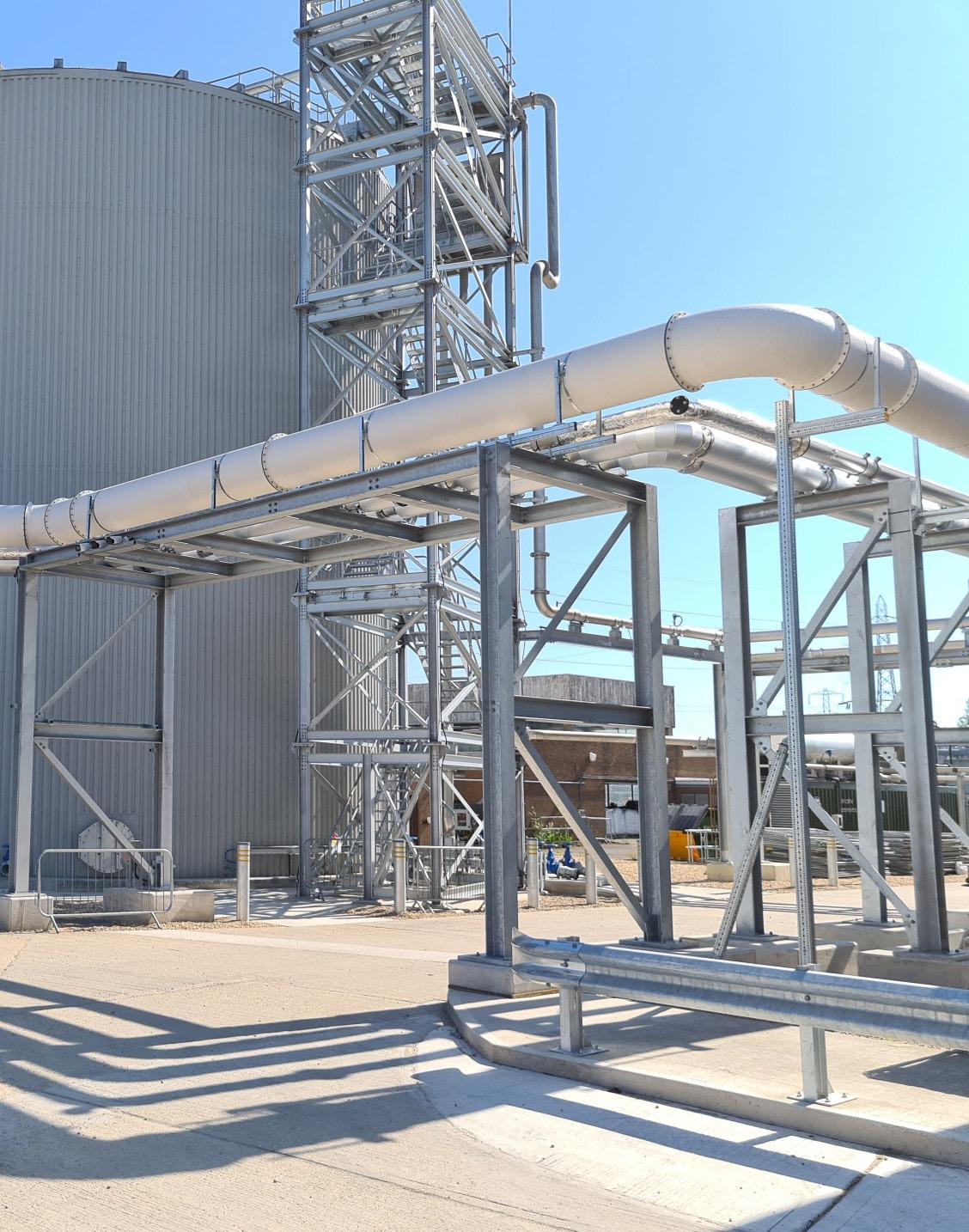
“ We urgently need to replace lost skills and start to rebuild the thinning ranks of the youngest and brightest in our industry – and the best and most business-friendly way to do that is by taking on apprentices. ”
helen Yeulet, BESA’s director of training and skills

The Association has welcomed new research that supported the case for wider adoption of heat pumps in both the residential and commercial building sectors along with extra funding for training.


However, the industry’s skills gap remains a major barrier to the UK’s strategy for decarbonising heat. More training resources will be vital to increase the number of installations and improve the overall performance of the technology, BESA believes.

The government announced a further £9.2m of funding to subsidise or provide free training courses in heat pump and energy efficiency installation across England late last year. This is designed to help the industry reach the government’s target of 600,000 annual heat pump installations by 2028
There has been heated debate about the suitability of heat pumps for different types of building, but a demonstration project funded by the Department for Business, Energy, and Industrial Strategy (BEIS) had a largely positive outcome.
The Electrification of Heat Demonstration Project, did however illustrate the need for more innovation to overcome some of the barriers to a widespread roll out of the technology – particularly around cost and disruption.
There were more than 8,000 applications to take part in the project in three different regions of the UK – with 742 heat pumps eventually installed. All the different property types were suitable and energy efficiency upgrades were needed for just 15% of the homes assessed, the researchers found.
Just 8% lacked the necessary outside space, 2% did not have room for a thermal store such as a hot water tank or for larger radiators, and in just 4%, the cost of installation and/or additional measures such as insulation made a heat pump uneconomic.
“This project shows the huge potential for heat pumps, but a key factor will be the industry’s ability to meet demand with a suitably trained workforce,” said BESA’s director of training and skills Helen Yeulet . “We are facing a race against time to keep the decarbonisation of UK heat on track.”
She added that upskilling to become a heat pump installer was a great way to “future-proof your business while helping homeowners and businesses reduce their energy bills and contributing to our long-term battle against climate change”.
The government has outlawed the use of gas boilers in new build homes from 2025 which means heat pumps will become a ‘mainstream’ domestic heating technology in just two years’ time so there will be increasing demand for fully trained installers.
BESA is one of the training providers to benefit from the new money awarded by BEIS following its recent Home Decarbonisation Skills Training competition. The Association’s share will allow it to deliver another 400 free training places for qualified plumbing, heating and refrigeration and air conditioning engineers looking to upskill with a view to becoming MCS-accredited heat pump installers. It will be the next phase of the programme the Association runs in partnership with MCS and heating equipment manufacturer Worcester Bosch that has already provided free training for 1,000 installers.
The training will be delivered through the Association’s online training Academy. It involves five hours online theory which can be completed in ‘bite size chunks’ at the convenience of the student, and two-days practical training at one of BESA’s approved training centres. On completion, students will be able to correctly install and maintain domestic heat pumps.
BESA said the money would also help to create a “significant training legacy” by supporting the development of more training centres able to produce a new generation of engineers with the necessary skills to retrofit homes and commercial buildings.
‘Training the trainers’ was a key element of BESA’s successful application for additional funding to help extend the network of Further Education colleges and independent training centres able to deliver heat pump courses. The hands-on practicality of the course and the final assessment it has developed with Worcester Bosch was another element appreciated by BEIS.
“Qualified heating installers will not find upskilling to heat pump work overly challenging, but there are some specific practical elements that are different and crucial to ensuring their installations work effectively and efficiently,” said Yeulet.

“Transitioning to low temperature heating requires a different way of looking at the system as a whole and
there are some key areas around sizing and commissioning that are central to our training courses,” she added.
The course will give students the ability to correctly specify and install low temperature heating systems, carry out accurate sizing of components, commission, and handover systems properly, as well as carrying out lifecycle maintenance.
Yeulet added that, because MCS certification was becoming more widely recognised as the industry standard, it was important that installers were also helped by the training to navigate their way through the system.
The course will be delivered in a ‘blended’ format with a combination of online and face-to-face training and Worcester Bosch will also assess the equipment in each centre to ensure it is suitable.
“This collaboration and the additional funding will allow us to create an extended network of local training hubs equipped to deliver meaningful, practical training to ensure heat pump technology performs to its full potential,” said Yeulet.
“It will also help installers explain the various options to homeowners and commercial building customers which is a good way to gain a reputation as a knowledgeable and trustworthy business.” n
The free course will be available via the BESA Academy in the next few weeks - keep your eyes on the website for more information.
“ This project shows the huge potential for heat pumps, but a key factor will be the industry’s ability to meet demand with a suitably trained workforce. We are facing a race against time to keep the decarbonisation of UK heat on track. ”
helen Yeulet, BESA’s director of training and skills


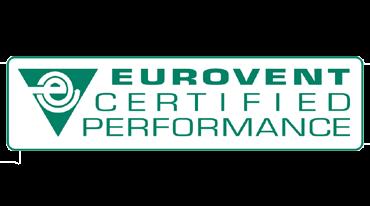

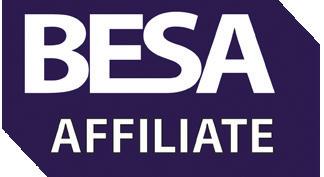


REFCOM has praised Cornwall Council for bringing a dishonest heating and air conditioning trader to justice.
Adrian Miles, trading as Duchy Eco Heating, pleaded guilty to fraudulent trading after being prosecuted at Truro Crown Court for mis-selling heat pumps and taking payment for work he did not carry out. He was sentenced to 20 months imprisonment, suspended for 18 months, and ordered to carry out 200 hours unpaid community work.
Miles had previously been REFCOM registered before being suspended for failing to undergo a compulsory safe refrigerant handling audit. This was triggered by a tip off from a refrigerant supplier who had grown suspicious of his apparent lack of technical knowledge.
REFCOM discovered that Miles had been passing off a sub-contractor as a member of staff and immediately removed him from the register. They then contacted Cornwall Trading Standards who had also received 14 customer complaints about Duchy Eco Heating and the two organisations worked together to build a legal case. Miles was found to have misled customers about the suitability of the heat pump systems he installed in their homes and failed to provide remedial work and servicing under warranty.


He had also taken deposits for work he then failed to carry out and had falsely claimed that his business was properly certified.
Cornwall Councillor Martyn Alvey said the actions of Miles were “totally unacceptable…I hope this acts as a warning to others that we will not hesitate to prosecute when traders operate illegally”.
Graeme Fox, technical director at REFCOM, added that this was a great example of how the industry, the register and the appropriate legal authorities could work together to protect the public.
“We are delighted to see this case come to a satisfactory conclusion,” he said. “The F-Gas regulations were introduced to ensure responsible use of environmentally damaging substances and ensure they are only ever handled by properly qualified and registered companies and individuals.
“This case has perfectly demonstrated how REFCOM will act whenever we are tipped off about anyone flouting the rules.”
BESA’s director of certification
Rachel Davidson added that REFCOM members had often been frustrated by the apparent lack of enforcement of the F-Gas regulations in the past.
“As well as endangering the public, it puts our members at a commercial disadvantage because unregistered firms like this one get away with not investing in technical and safety training or the systems needed to manage refrigerant gas safely and responsibly,” she said.
“We are delighted that an example is being made of this company and hope this will make others think again about putting the quality of services and products at risk, endangering lives and property, and undermining the UK’s commitment to reducing greenhouse gas emissions.” n
www.refcom.org.uk
“ We are delighted that an example is being made of this company and hope this will make others think again about putting the quality of services and products at risk, endangering lives and property, and undermining the UK’s commitment to reducing greenhouse gas emissions. ”
Rachel Davidson, BESA’s director of certification




















































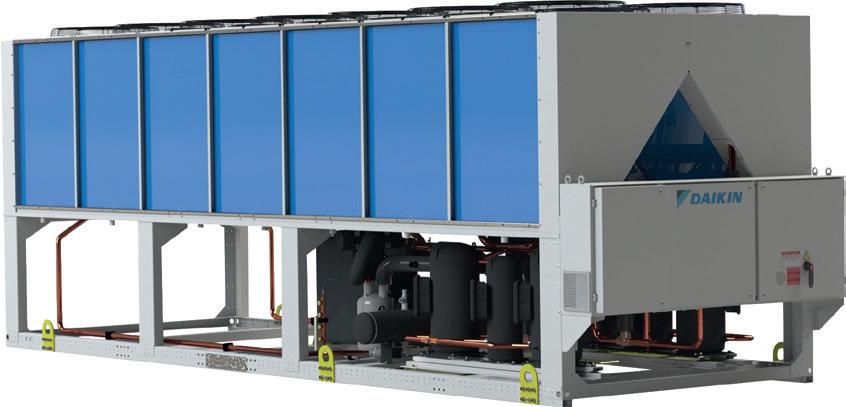






























Leading manufacturers within the building services sector recognise the importance of membership accreditations and are rewarding their customers who are committed to high standards of competence and compliance, through their incentive schemes.
Currently there are two BESA Affiliates, Daikin and Mitsubishi Electric where BESA and REFCOM members can claim via their schemes.
d1 Business pArtner
• Up to 50% of your BESA membership
• Up to 50% of your REFCOM Elite membership
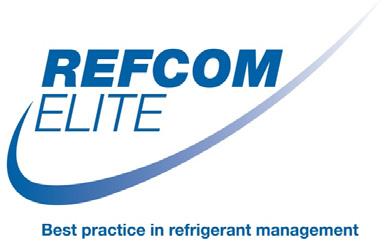
• Up to 50% of F-Gas training
d1+ preMiuM pArtner
• Up to 75% of your BESA membership
• Up to 75% of your REFCOM Elite membership
• Up to 75% of F-Gas training
For both Daikin Partner Schemes you need to use your Business Development Fund by 28 February 2023, otherwise you will lose your remaining funds and will start from zero on 1 March 2023.

Login here and claim before it’s too late

• You can claim up to 50% of your BESA membership
• You can claim 100% of your REFCOM Elite Membership
If you are a member of Mitsubishi Electric’s Partner Programme either as an Accredited Installer, Business Partner Solution or Diamond Quality Partner, you can use your Relationship Development Fund to reclaim the following:
• You can claim up to 50% of your BESA membership
• You can claim 50% of your REFCOM Elite membership
• Use £500 towards you or your employees’ F-Gas Renewal training
• Use £500 towards you or your employees’ SKILLcards
• Use £1000 on F-Gas industry training or your H&SE Course
You have until 17 March 2023 to submit your claims against your Relationship Development Fund before it expires. The next RDF pot will start on 1 April 2023 where you will have the opportunity to claim funds up to 15 September 2023 before the RDF resets to zero on 1 October 2023.
Log into the Mitsubishi Electric Customer Portal to see the value of your fund and details on how to claim.
Your BESA Membership Team is always on hand to help, and you can get in touch with them on 0345 646 1044 or email membership@thebesa.com.

Whether you need a full planned maintenance proposal, utilising their Computer-Aided Facilities Management (CAFM) software or simply a reactive job, AFT have fully qualified and highly skilled engineers to provide you with a first-class service. They also offer HVAC plant-room refurbishment projects tailored to your specification.
aft.fm



Comprehensive Deep Cleaning. Diamond Deep Clean Solutions cover all aspects of kitchen deep cleaning, helping to ensure your kitchen environment stays clean and safe. Their survey allows them to provide a tailored and transparent work schedule to meet your kitchens unique requirements.
diamonddeepclean.co.uk
Offering every aspect of electrical installations and maintenance. Their expert advice ensures that all your electrical needs are catered for no matter the size or complexity of the Installation.
BMES’s specialist knowledge in the electrical field ensures that all installations undertaken offer maximum performance utilising all the latest technologies thus saving energy and reducing electrical consumption costs. bmesscotland.co.uk

Hygeia are specialists in industrial cleaning and sanitisation services to medium and large organisations across the United Kingdom. They have been in operation for over ten years and pride themselves in the quality of service and reporting they offer.
Hygeia provide full supporting documentation for all projects, including detailed method statements, certification of completed works and post-clean reports. Should air or water system sampling be required, this is carried out to HVCA recognized standards, and analysed by UKAS accredited independent laboratories. hygeialtd.com


As leading experts in chemical free systems (electrochemistry), EleXion Water Treatment is an environmentally focused company providing 100% chemical free water treatment solutions. In compliance with VDI 2035 and the latest BSRIA BG50 guidance, we work with clients to provide sustainable solutions for the protection of both heating and chilled closed loop water system. elexion.uk

Ensign Advanced Systems Ltd provide take-off and estimating software for mechanical, electrical, ductwork and insulation contractors, with award winning software proven to reduce errors. ensignonline.co.uk
Frese is one of the world’s leading manufacturers of energy efficient, pressure independent valves and controls for the global HVAC, District Energy, Marine and Industrial markets. frese.eu/en-gb


ProTech Global is a market leading UK based manufacturing company specialising weatherproofing systems solutions for the thermal insulation markets. Their self adhesive and none adhesive range of materials are used to seal and protect assets within a number of sectors, including Building Services, Marine, Pharmaceutical and Oil and Gas. Their flagship ProClad range has been specified to protect assets across the globe from the harshest environments. protechglobal.co.uk
Xylem is a leading water technology company committed to “solving water” by creating innovative and smart technology solutions to meet the world’s water, wastewater and energy needs. xylem.com/en-uk


From their base in Coatbridge, JLC Maintenance provide a variety of services within the ventilation industry – designed bespoke for their commercial and industrial clientele.
With over 25 years of experience, there’s few that can compete with their high-level of workmanship. Since 2010, they have offered their services to the entirety of Central Scotland, although they are willing to travel if the job is right. From contracts, to sub-contracts and one-off jobs, they handle it all.
jlcventilationandmaintenance.co.uk

M & G Fire Protection Ltd provide a cost-effective fire alarm design, installation and maintenance service and fire extinguisher maintenance programme to service industry and commerce throughout Essex and London. mgfire.co.uk

Quinn Ventilation Ltd provide plumbing, heat and air-conditioning installation and is based in the West Midlands. quinnventilation.co.uk

Residential and commercial ventilation services that you can trust. Venti-Clean have been serving customers for the last 20-years across Dorset and Bournemouth. They specialise in the cleaning of kitchen ventilation and industrial premises. Although based in Bournemouth Venti-Clean cover a large radius and visit many different counties around the south of England. venticlean.co.uk
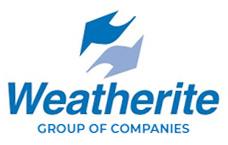
From modest beginnings in 1972, Weatherite Group has established itself as one of the leading HVAC and Retail/Entrance Solution providers in the UK, operating within highly demanding and competitive market sectors.
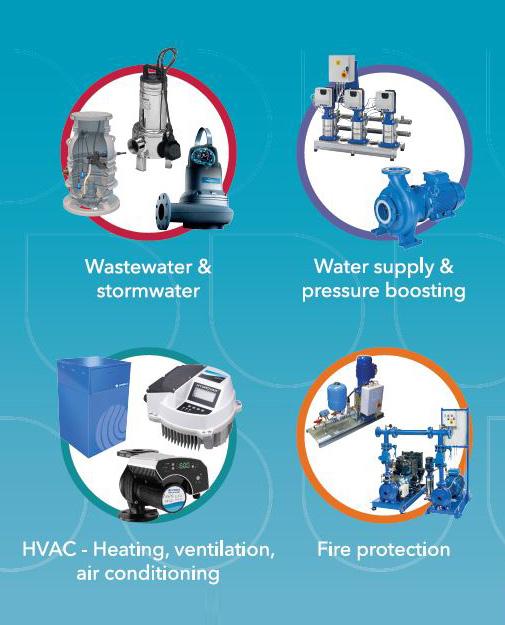
The Group’s foundation, remains firmly rooted in its people – teams of highly skilled professionals, working closely together at every level, from shop-floor to senior management, bringing a wealth of experience to the Group. weatheritegroup.com
Xylem is a leading water technology company committed to “solving water” by creating innovative and smart technology solutions to meet the world’s water, wastewater and energy needs.

In a world of ever-growing challenges, Xylem delivers innovative water technology solutions throughout the cycle of water. Xylem’s technological strength across the life cycle of water is second-to-none. From collection and distribution to reuse and return to nature, Xylem’s highly efficient water technologies, industrial pumps and application solutions not only use less energy and reduce life-cycle costs, but also promote sustainability.
Today, most of our buildings have a significant negative impact on our environment and climate change. Let’s change this together by building sustainable buildings with reduced energy, CO 2 and water footprints n
For more information, please visit: www.xylem.com/uk
Fit for purpose, fit for people, fit for life. Bringing
16 Industry leading exhibitors




50 expert speakers

200+ attendees

Topics to include – Net Zero, Sustainability, Skills, Building Safety, Smart tech



Date: 12th October 2023
Location: Novotel London West
BESA’s Health and Safety Team has produced a range of useful Risk Assessment and Tool Box Talk templates to help save members time, effort and ensure they are compliant so they can focus on the job in hand.
As an employer, you are required by law to protect your employees, and others from harm. Under the Management of Health and Safety at Work Regulations 1999, the minimum you must do is:
• Identify what could cause injury or illness in your business (hazards).
• Decide how likely it is that someone could be harmed and how seriously (the risk).
• Take action to eliminate the hazard, or if this isn’t possible, control the risk. Assessing risk is just one part of the overall process used to control risks

in your workplace. You are required to make an assessment of the health and safety risks to which your employees and others could be exposed to on site. Any significant findings must be recorded where five of more people are employed. Tool Box Talks are short presentations which focus on a specific aspect of health and safety.
So far, we have available to download in your BESA Members’ Resource Library for free:
• General plumbing
• General roof work
• Generic mechanical hand and powertools
• Hot work welding, soldering, grinding and cutting
• Use of ladders
• Use of mobile elevated work platforms (scissor lifts and cherry picker)
• Use of mobile scaffold towers
• Welding
• Work with ionisation radiation
• Working near or over water
• Working on flat roofs
We are looking to create further Risk Assessments and Tool Box Talks so it would be useful to find out what you would like next? Get in touch with us at hssupport@thebesa.com
Your BESA Health and Safety Team are always on hand to help with any queries and you can book a one to one online H&S Support Session with Rebecca Crosland, BESA’s Head of Health and Safety at a time when is most convenient for you. n
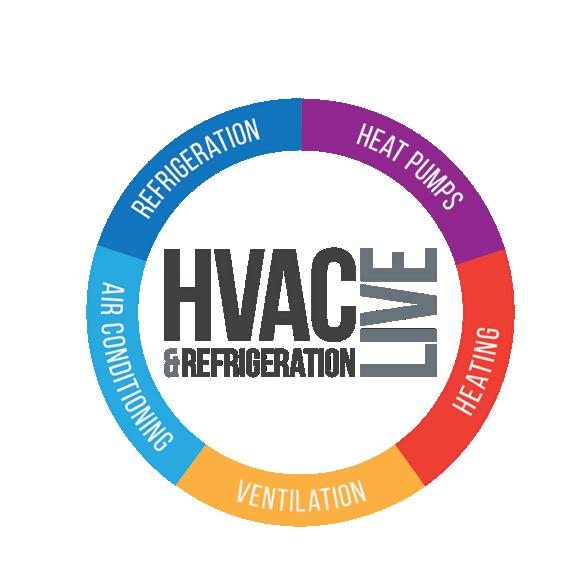

the institute for Apprenticeships and technical education (ifAte) needs your expertise!
The Institute for Apprenticeships and Technical Education (IfATE) is looking to review and revise six building services engineering apprenticeships. IfATE need employers like you, for the trailblazer group to help ensure the content within the apprenticeship creates employees for future with the competence they need to be successful in the building services engineering industry.
Can you help? If so, please contact Karen Oakes at karen.oakes@education.gov.uk
Please share with your colleagues and networks.

Amid the dramatic surroundings of the home of the famous London Scottish Regiment, BESA President Rab Fletcher called on association members to do their bit to tackle the country’s big social challenges.
In his presidential address to more than 100 members and guests, he said the building services sector had a pivotal role to play in tackling the energy, climate change, cost of living, and building safety crises confronting the country.
“these are big problems for the uK, but they are also opportunities for us to demonstrate the value of this industry and why our expertise matters,” he said, adding that building engineers were in a privileged position because they could make a difference and influence the future.
“BESA will continue to champion our role, drive improvements in technical and professional standards, and support training as we strive to create a workforce capable of rising to these challenges,” he added.

theresa May’s former political advisor tom Swarbrick was the special guest speaker and provided some fascinating insights into the workings of Downing Street. he also spilled the beans that there was “never any plan” for delivering net zero by 2050 when it was agreed as a legally binding commitment by May’s government.
REFCOM - the UK’s leading F-Gas register, held an F-Gas networking event for its members and BESA Affiliates at the Ethiad Stadium on 17 January, where Graeme Fox, Director of Technical discussed the latest revisions to the F-Gas regulations and Roger Smith, Certification Assessor was on hand to deal with any technical queries. Andrew Chignell, Poynton Refrigeration, receives a certificate from David Frise, BESA Chief Executive, to recognise their 15 years of REFCOM certification.
Members received a behind the scenes tour of the Ethiad Stadium and had the chance to meet their fellow F-Gas peers, manufacturers and distributors. Special thanks to headline sponsor Joblogic and other event sponsors REFCOM Elite Suppliers Logicool and iXus.

To find out more about REFCOM, visit the website


BESA Group Companies
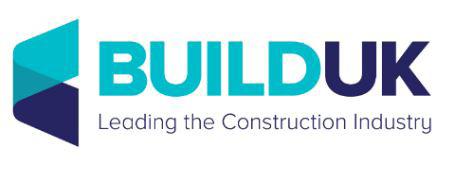
Build UK have launched their latest People Survey to help them understand how the current economic climate is affecting recruitment and the level of awareness of changes to CSCS cards achieved via industry Accreditation.
It is a short survey, which should take no more than five minutes to complete. You will need the following data to hand:
• The number of vacancies you are recruiting for




• The number of apprentices you employ and their completion rates
• The number of Industry Accreditation card holders in your workforce
Deadline is Friday 17 March.
Complete the short survey today





Rising energy prices and an increased focus on keeping people safe and well in buildings is radically changing the way many clients look at how they plan and cost maintenance. The unprecedented combination of energy becoming a real source of concern to financial managers and the renewed focus on occupant safety via the new Building Safety Act is creating unique circumstances for an FM ‘bounce’.
However, many building owners and managers are uncertain about how to put a proper FM strategy in place. Lack of awareness, information and expertise means businesses are missing out on easy to access energy savings and performance improvements.
Around 80% of a building’s total costs are accounted for during its operating life with only 20% from construction. However, the industry has continually struggled to accurately predict lifetime maintenance costs or plan them in a way that extracts best value for the end user. Much of this must be done retrospectively and the new pressure on operating costs is creating increased demand for detailed ‘in use’ audits.
The market for UK building maintenance is estimated at over £60 billion/per annum, but a lot of that money is not being properly targeted to reduce running costs and carbon emissions, and not enough is being spent on keeping buildings operating safely and efficiently.
Even a basic analysis of building services will identify where small improvements can make a significant difference – and some of those steps are completely free. Turning
down thermostats and heating flow temperatures, having boilers and other plant serviced, improving insulation, and replacing inefficient lightbulbs with LEDs are all quick and easy measures, but while some users are embracing this approach enthusiastically, many more are not.
FMs often struggle to make a persuasive case to the building owner to defend maintenance expenditure – even if it is relatively modest –because they lack the relevant data.
Modern
Digitising more of the work, simplifying methods, and using clearer language are all important elements in making this whole area more modern and professional – and so, with that in mind, the built environment’s leading industry bodies are now working together to align the data standards used to manage costing, carbon and building and facilities maintenance.
SFG20, BESA’s industry standard for building maintenance, is at the heart of this process and is being aligned with the RICS New Rules of Measurement (NRM) for building works and the BIM Construction Classification (Uniclass) developed by NBS.


And, as part of the simplification process, sFg20 has developed a new tool: resource Modeller is designed to help maintenance professionals
cost their requirements and identify exactly what resource is required to start driving down running costs, while also identifying key areas of risk to the building manager, particularly around health and safety.
this cloud-based tool is designed to accurately map the specific requirements of each building so FMs can find the most cost-efficient strategy for managing maintenance costs in a way that will also help thousands of businesses achieve their sustainability goals and cut carbon emissions.
the information gathered by resource Modeller allows users to identify resource requirements for the maintenance costs of buildings throughout its lifespan. they can also create bespoke maintenance plans and adjust variables such as hourly rates and model quantities to go deeper into ongoing operating costs.
The demand for greater digitisation of the FM process has been there for many years, but the financial incentive has never been greater. Pushing for investment to improve energy efficiency was often a ‘hard sell’ in the past because of the relatively low cost of gas and electricity when compared with other business costs. n
www.SFG20.co.uk

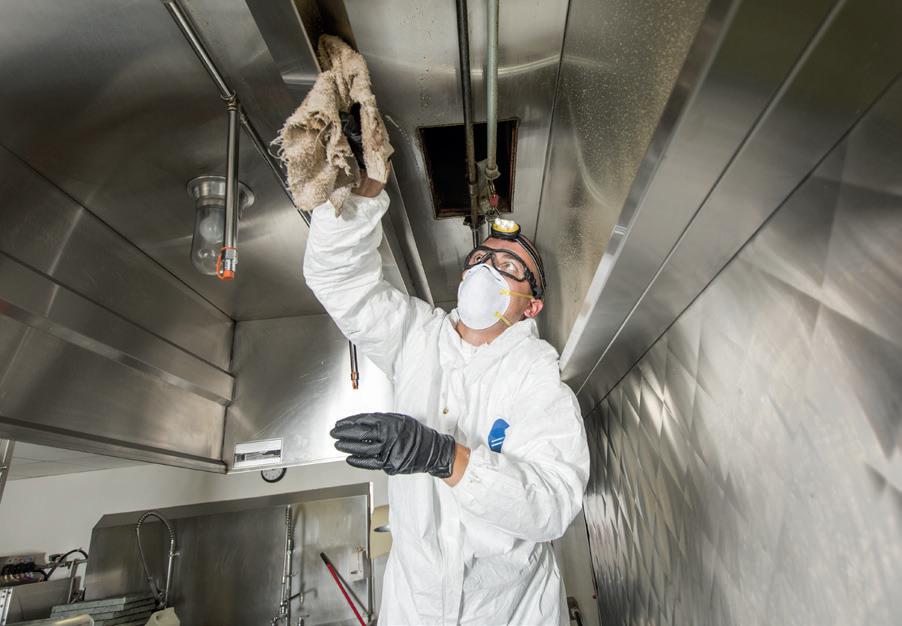




All webinars take place on Tuesday and Thursday at 12:00 – 1:00pm GMT

Our free webinars offer practical tips and tricks, you can apply directly within your business
They take a deep dive into the technical side of building engineering services
Update your knowledge to meet industry standards and be competent and compliant

Building safety
Net zero
Skills
Energy efficiency
Financial and technical updates


We provide a specialist range of training courses, assessments and CPD enabling you and your engineers to develop your careers.
All our courses are flexible, can be completed at your own pace and accessed from your PC or laptop whilst at work, home or on the go. Start your learning journey with us today by registering with besa.academy.
This test meets the H&S requirements for all Craft and Operative SKILLcards and is designed for those within the heating, ventilating, air conditioning and refrigeration occupations.
The test is 100% online and takes less than two hours to complete. Save time and money spent on resits by booking the course and test.
Book now

This short online course will provide you with fundamental awareness of some of the F-Gas terms and regulatory requirements which must be adhered to, by those working in the refrigeration and air-conditioning industry.
This course will give you the confidence to communicate with customers and your staff alike, ensuring a professional and efficient service.
Book now
website: theBESA.com/besa-academy
Email: academy@theBESA.com
telephone: 0800 917 8419
This course is the only online F-Gas Renewal course on the market and is aimed at refrigeration engineers who are either approaching the end of their five-year certification period for Cat 1 and Cat 2 F-Gas or want to ensure they are up to date with the latest mandatory F-Gas requirements.
Renew your F-Gas qualification in less than 6 hours, with immediate assessment results and a downloadable certificate if passed.
Renew now
As environmental legislation drives the sector towards lower global warming potential refrigerants, our technicians are increasingly having to deal with and handle flammable refrigerants.
This course will upskill qualified F-Gas engineers to ensure they are aware of the specific requirements which must be applied when handling these refrigerants.
Book now
In partnership with Worcester Bosch and the Home Builders Federation, we have developed a Heat Pump Installer course for plumbing, heating and F-Gas engineers looking to upskill.


Learn how to correctly specify, install and maintain domestic heat pumps.
Visit the website to find out more.
The design stage is an important step in ensuring the optimal performance of an air conditioning system. During the design stage, a number of factors must be considered in order to create an effective and efficient system.
By carefully considering these factors and implementing appropriate design strategies, it is possible to create an air conditioning system that effectively and efficiently meets the needs of the occupants of a space.
In this Certification Service

Certified course, Daikin explores all of the above, alongside best practices and practical tips.
Register now
In this Certification Service Certified course, you will learn about the legislative framework at the base of indoor air management and the minimum requirements you have to account for in your next design.
Daikin explains Part F and best practices for the industry and closes with a look at what Daikin can offer to satisfy the needs for better air inside.
Register now
In this CIBSE accredited course you will learn the benefits of moving past the take-make-dispose economy, in favour of adopting a more sustainable and “circular” approach. You will also learn about the latest building industry trends and the new framework of reference of Embodied Carbons.
Finally, you’ll be presented with what Daikin is doing to help this transition, moving toward an accelerated decarbonisation of the HVAC industry.
Register now


energy saving course, presented by enco




This BEIS endorsed online course is for energy professionals working within energy-using organisations, consultants advising clients, or anyone interested in effecting behaviour change in organisations to enable significant energy savings through people.
Find out more or register your interest
HvAc system Air Filtration for clean Healthy indoor Air Quality Register now

understanding Mechanical ventilation with Heat recovery for commercial Applications Register now


Firestopping of service penetrations Register now

understanding uK Building regulations relating to MvHr Register now

Air and dirt separation Register now
compensation for thermal expansion Register now
History of Legionella and Legionella Within Hot and cold Water systems Register now


needlepoint Bipolar ionisation Register now
thermostatic Mixing valves
Register now
variable volume pressure systems
Register now
Water systems for Modern Buildings Register now

promoting a culture of fairness, inclusion and respect brings many business benefits to the companies that work to achieve it.
As a sector, we need to embrace FIR in order to attract, recruit, train and retain the skills in order to address the industry-wide skills shortage. Clients and large contractors are increasingly expecting their supply chain partners to work with them to achieve this.



Our vision is one of a more inclusive built environment sector, that is better able to attract, recruit, train and retain talent and meet the expectations of all our stakeholders.

We provide a range of free CPD which addresses how leaders and managers can increase the effectiveness of their team and their organisation by considering fairness, inclusion and respect.

Find out more or register now







The
Proof that you are trained and qualified for the job you do

Who is BESA Business insurance Services and what do you do?
We provide high quality insurance solutions and risk management advice to BESA members, building contractors and tradespeople. We provide expert advice on the type and level of cover required to protect your business effectively.
What are the specific risks that building contractors and tradespeople are facing in 2023?
There are three main concerns that are universal across the sector. These are; the cost of living crisis, labour shortages and importantly the supply chain disruption. With ever present concern surrounding all three risks, the average business is considering how they will stay afloat across 2023, cutting corners on your insurance policy is not the solution.

The impact of inflation and these shortages could mean that your insurance requirements don’t just change annually, but most likely will change several times per year. As a result, under-insurance is a pressing concern and therefore it’s important you regularly review your needs with your broker. Remember that insurance isn’t just a purchase, but a service and regular interaction with your broker should be encouraged.
From an insurance standpoint, there are two questions to consider:
1. Has inflation increased your cover needs - does your current insurance policy cover you for what you need?
a. Underinsurance can have major impacts on the output of a claim.

2. Are you in regular communication with your broker to understand how they can support you further?
a. Your broker may be able to offer advice or solutions to support you during the cost of living crisis.
What insurance coverage do you offer building contractors and tradespeople? Types of cover available from BESA Business Insurance Services include:
• Public/products liability, including inefficacy (when a product or service you supply fails to perform its intended function)
• Employers liability
• Professional indemnity
• Commercial legal protection

• Hired in plant
• Contract works
• Tools, stock, own plant and equipment
• Personal accident
• Management liability/directors and officers
• Business interruption
• Business premises and contents
• Fleet
What can your insurance experts do for building contractors and tradespeople? You wouldn’t think of starting a job without the right equipment.
Arranging insurance for your business is no different, so it pays to speak to professionals who can help you.
We understand the day-to-day risks and unique challenges you face, we will support you by offering:
Bespoke protection – there isn’t a one-size-fits all approach, so whether you’re a sole trader or manage a business, our tradesman insurance is designed around you.
Professional risk management advicewe’ll help to identify your key exposures to risk and how they can be reduced.
Dedicated support – our expert team is on hand to answer any questions you have, resolve issues you encounter, and with any claims that arise. n
Get in touch with the BESA Business Insurance Services insurance team today on 0333 2413533 or visit besa@marshcommercial.co.uk to find out how we can support you.







All Indoor units with nanoe™ X as standard

This advanced technology utilises hydroxyl radicals (OH), which inhibit the growth of certain pollutants such as allergens, bacteria, viruses, moulds, odours, and certain hazardous substances.

Increasing the efficiency
The new series has been developed for a 3-wire connection which supplies power from the outdoor unit to the indoor unit and transmits the control signals, thus avoiding an additional power supply and making it a simple solution for retrofit.
Smart connectivity
CONEX, the new wired remote controller series is fully integrated with IoT solutions developed by Panasonic. Detailed operation, maintenance setting and service operation are all possible with smartphone or tablet.

The NX Series have an improved capacity range from 2.5 kW to 14 kW and provide outstanding SEER/SCOP* efficiency values and energy labels up to A+++. nanoe™ X technology verified against SARS-CoV2
Virus SARS-CoV-2: 99,9 % inhibited. Test conducted by TEXCELL (France), using a gauze saturated with SARS-CoV-2 virus solution exposed to a generator of nanoe™ X in a 45L box for 2 hours. Performance of nanoe™ X might differ in real life environment.